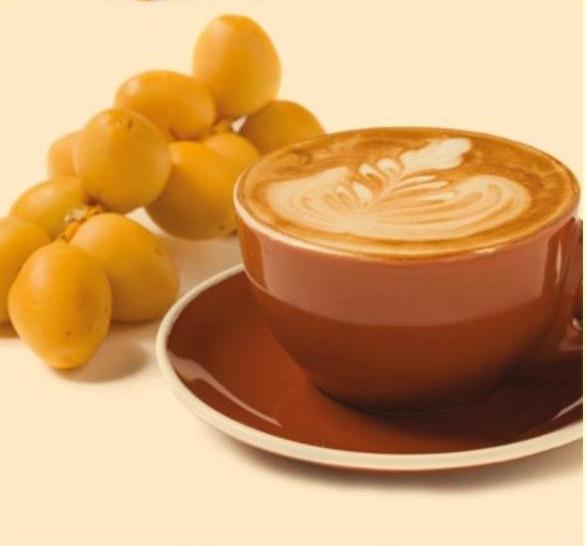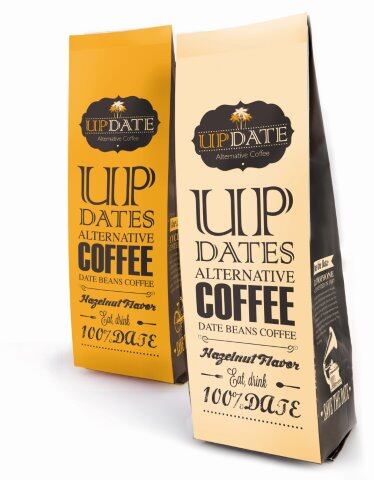Update Foods said it got its raw material, which made up 97% of the product, for free from Israeli date producers grateful to have someone willing to take away the raw material that otherwise would have to be disposed of as waste.
Currently marketed as a coffee alternative containing 3% organic regular caffeinated coffee for taste reasons, the firm said its future plans stretched far beyond coffee

and tea alternatives into seeing the ground kernel as a nutritious food and drink ingredient.
The start-up company's co-founded and chief technical officer, Shay Cohen, told FoodNavigator: "One person's waste is another's raw material."
Date kernels or beans are the seed found at the centre of the sweet, toffee-like fruit.
Waste not want not
Cohen said the company founders began investigating coffee alternatives when they discovered coffee's distinctive taste came largely from the roasting process and that the decaffeination process of coffee used chemicals which may not appeal to certain consumers.
He said the 3% regular organic coffee, as well as a small amount of brown sugar, added to the date alternative had "no significant influence of caffeine levels" but was included to give the product a taste consumers expected from coffee.
Sustainability
Cohen said the founders had not initially set out to create a sustainable company, saying they found a potentially profitable business idea then worked backwards to find that it could also be sustainable. "But sometimes the sustainable and the economical are the same thing," he said.
He said sustainability was costly when companies had to make changes to their ingredients or packaging, requiring an investment which took time to recoup. "Normally it's the switching costs that is high for companies wanting to do something sustainable," he said.
By starting with a sustainable idea, this was not an issue for Update Foods, he said. "You can imagine if we offer to take away the waste they [the date producers] would give it for free. So it's sustainable." He added the firm paid for transport costs of the date kernel from the growers to the grinding facility in Tel Aviv, where the country's third largest coffee producer completed this process for them.
A new food ingredient
He said apart from use as a biofuel the company had not found anyone else using date kernel waste in this way commercially. There were some people using roasted ground date kernels as a drink on a personal scale, possibly a habit passed down from family members immigrating from nearby Iraq, he said.
The ingredient did not require approval as a novel food ingredient in Israel since all possible usages of every part of the date fruit was already approved. In the US it has GRAS (Generally Recognised As Safe) approval, Cohen said. It was now looking into these aspects within the European market, he said.
He said the company also planned to research potential health benefits like cholesterol management. Already the company markets the products as containing fatty

acid, vitamins B3, B6, beta-carotene, antioxidants, calcium, magnesium, potassium and sodium.
Making plans
He said the coffee alternative, available also in hazelnut flavour to appeal to the US market, was just a starting point. "It's an amazing ingredient and we're just at the beginning of using it," he said. "We're just realising how much there is to explore."
He said beyond finished food and food ingredients, cosmetic and personal care could also be sectors worth exploring.
After establishing links with health food retailers in Israel, Cohen said the company was in discussion with Russian distributors. "Russia is a great market for alternative anything, especially coffee. I don't know why."
Moving forward he said development would be dependent on investment into market education to show manufacturers, retailers and consumers "what it is and why it's good for them".
